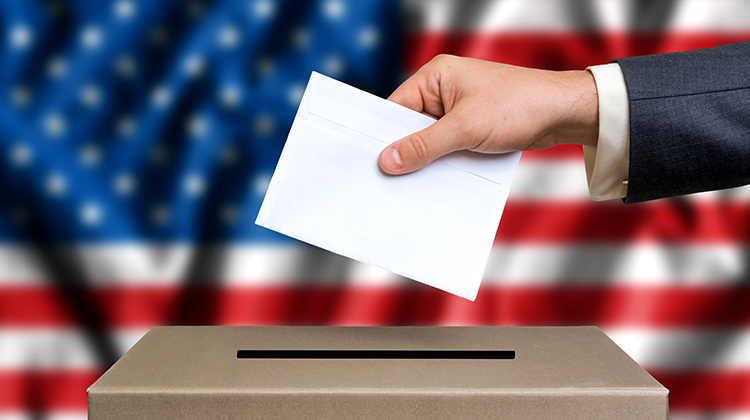Biotech, Biopharma Takeaways from the Election

In the wake of Donald Trump’s surprise election last week, and with the GOP maintaining firm control of Congress, pharma and biotech stocks have witnessed an unforeseen surge that may yet settle as Inauguration Day approaches.
Nonetheless, in the week after the election, the OIS Index rose 13%, outpacing the NASDAQ Biotech Index and other indices. (See Chart.)
Here are three key post-election takeaways that bode well for the pharma and biotech spaces after Inauguration Day and beyond.
1) Tax policy changes that encourage repatriation of corporate money held abroad could spell an uptick in M&A activity, particularly in biotech.
Tax reform is a key for both Trump and Congressional Republicans. Trump’s campaign website said he supports a 10% tax rate for a repatriation of cash US companies hold overseas rather than the current 35%. “This could be a holiday, of sorts, for drugmakers,” the website STAT reported. Evercore ISI analyst John Scotti told STAT that nine big drug and biotech companies have a combined $120 billion in overseas cash.
The list includes familiar names in the ophthalmology space: Merck, Pfizer, and AbbVie. Piper Jaffray & Co. estimates Amgen and Gilead Sciences hold the most, over $30 billion and $20 billion, respectively. Such repatriation “would be viewed positively in the biotech/pharma space given the generally large balances of ex-US cash and increased capital flexibility repatriation may bring,” Piper Jaffray research analyst Joshua E. Schimmer, MD, says in a research brief.
Writes Brian Abrahams, MD, an equity analyst at Jefferies, in a research brief: “A repatriation holiday would increase large-cap company flexibility and could facilitate US small/mid-cap biotech acquisitions. While M&A slowdown has weighed on biotech, we note deals in October tend to be limited historically, large pharma/biotech is still actively looking to leverage cash to grow pipelines/EPS accretion, and our analysis suggests November/December are two of the most popular months for M&A transactions in the space (though if a rate raise is not imminent it could decrease sense of urgency, and some possibility companies could wait for more granularity on Trump’s potential health care policies.”
The tax changes could also remove the incentive for the renewal of inversion deals, including the Pfizer-Allergan deal that was sunk by directive of the US Treasury. In a report, Liav Abraham of Citi suggests the alignment of the US tax system with other countries will make those deals less attractive.
2) Changes at the FDA could lead to a friendlier regulatory climate for drug and device makers.
Trump’s transition website lists two key components of his agenda for health care: “Advance research and development in health care,” and “Reform the Food and Drug Administration, to put greater focus on the need of patients for new and innovative medical products.” A House-passed bill to accomplish the latter has bogged down in the Senate, but plans going forward in a Trump administration are not yet clear. What is clear is that FDA commissioner Robert M. Califf, MD, an Obama appointee, could be replaced come January.
STAT reporter Ed Silverman expects sustained pressure on the FDA to issue rules for expanded off-label marketing of drugs. A day after the election, the FDA held a two-day meeting to garner input from consumers and companies about off-label drug marketing.
3) Pricing and transparency pressures on drugs ease up – for now.
Many in pharma are breathing a sigh of relief, seeing Trump’s election and the defeat of Proposition 61 in California as easing concerns about drug pricing. Proposition 61 would have required California to pay no more for drugs for its various state programs than what the Veterans Administration pays. Pharma spent $109 million to defeat the initiative. Piper Jaffray & Co. credits the daily Election Day double as pointing to “a potentially more friendly or at least less hostile”drug-pricing environment.”
Trump talked about allowing Medicare to negotiate drug prices during his campaign, but that seems unlikely to gain traction with Republicans firmly in control of Congress. While states consider drug price controls and transparency, only Vermont so far has enacted such a law – one that requires drugmakers to justify price increases on medications the state buys.
However, this may not be the last word on efforts to rein in drug prices. Ohio will take up a ballot question similar to California’s next year, and five states still have legislation pending. A Kaiser Health tracking poll in September found that 77% of Americans think prescription drug costs are unreasonable, up 5% from a year earlier.
But as Thanksgiving approaches, pharma and biotech are giving their thanks. States a Locust Walk blog: “The general signal that no further restrictions and regulations will be placed on the biopharma industry has provided a greater sense of certainty under Trump than it has for other industries. Whether this sense of certainty will be a catalyst for further performance of biotech markets and a thawing of the IPO markets is yet to be seen, but it is likely positive news for biopharma companies both public and private.”
